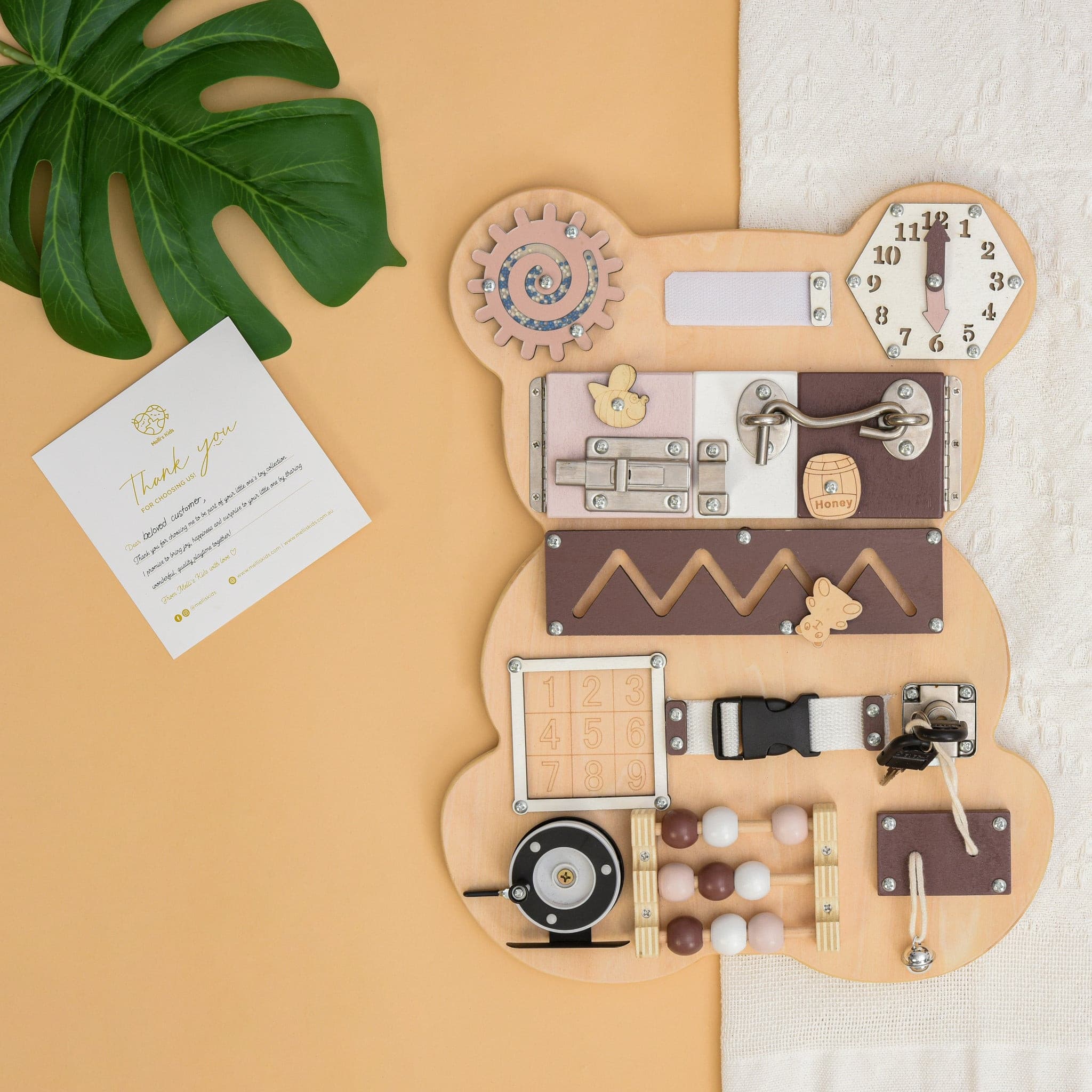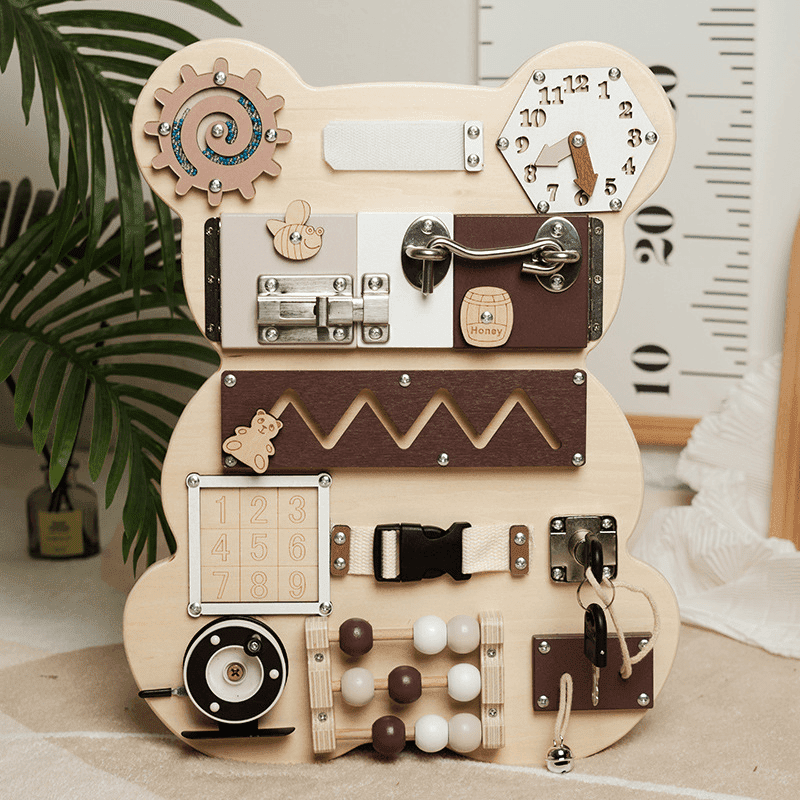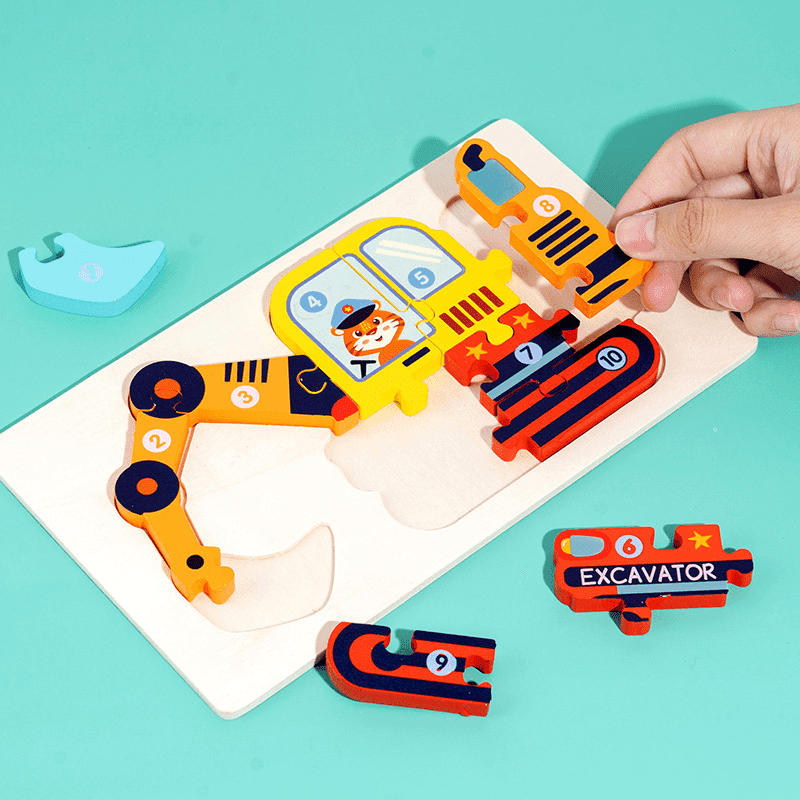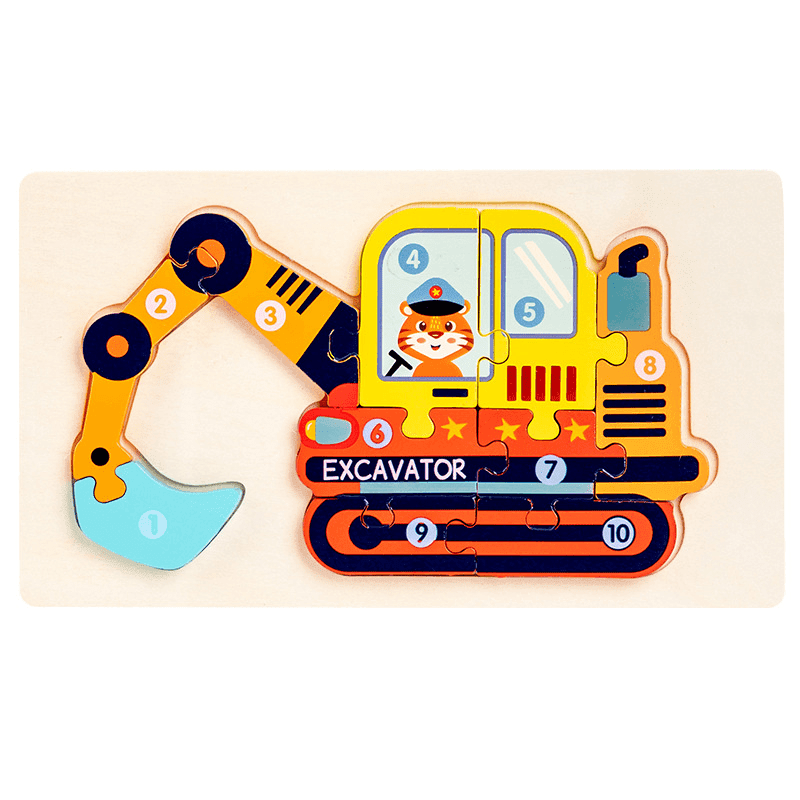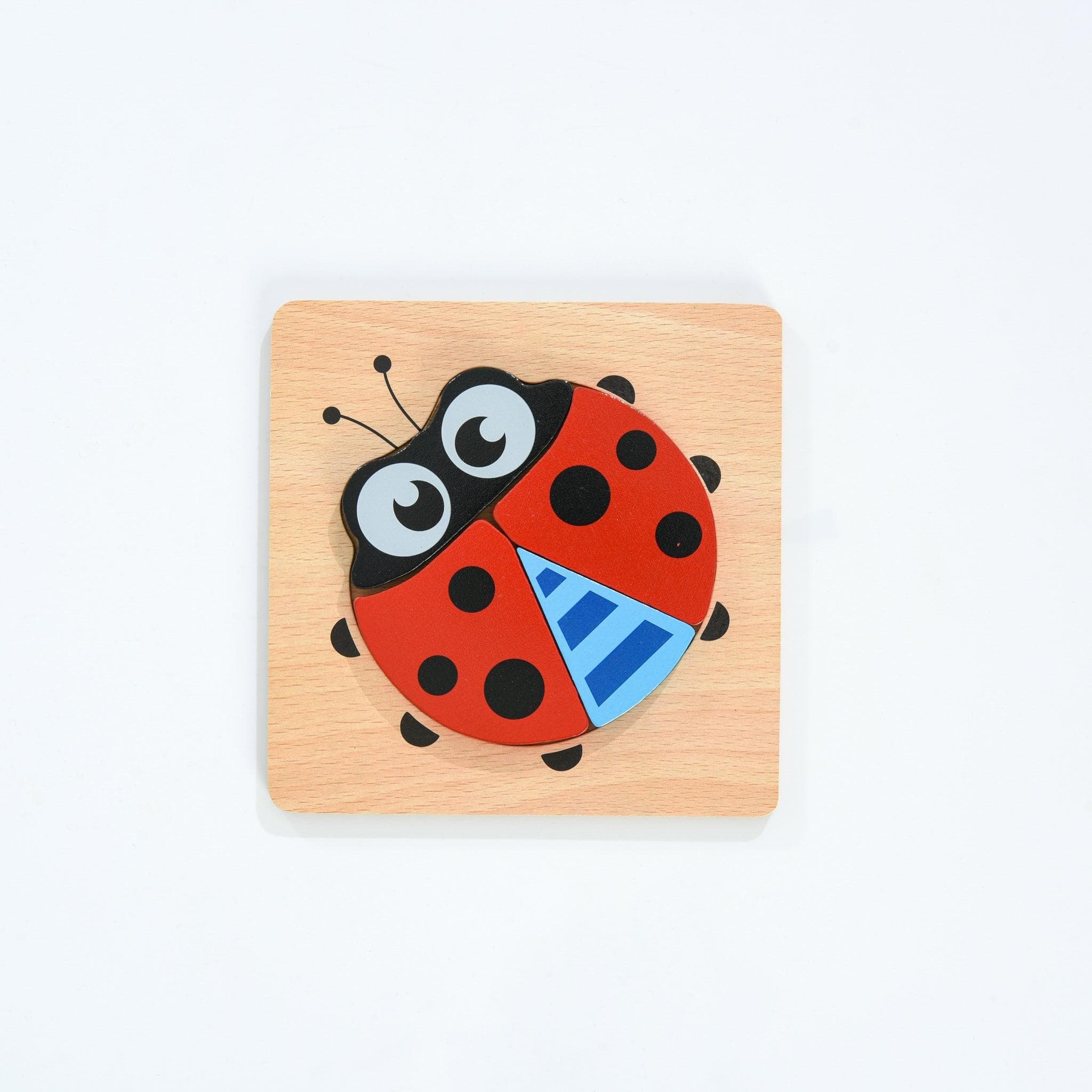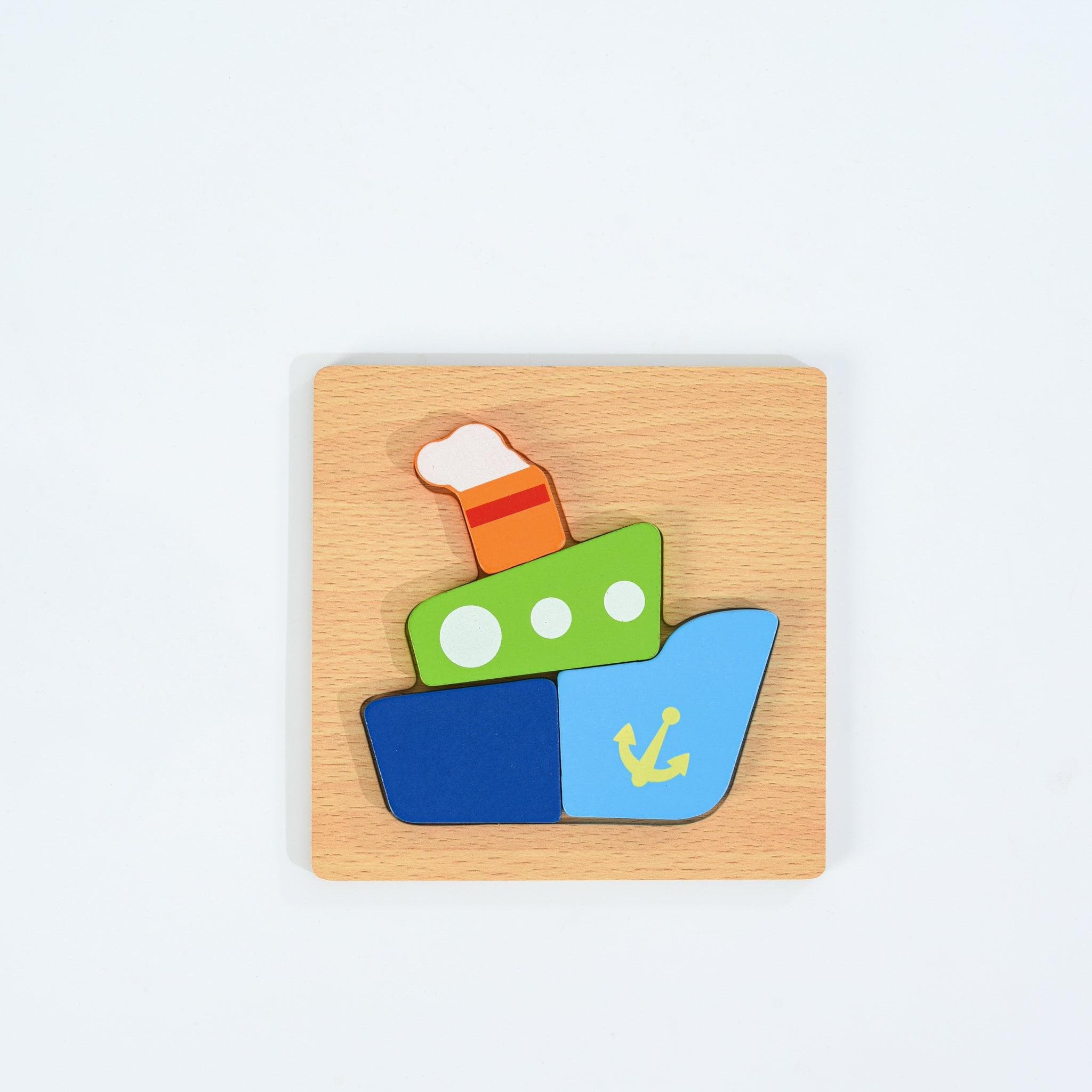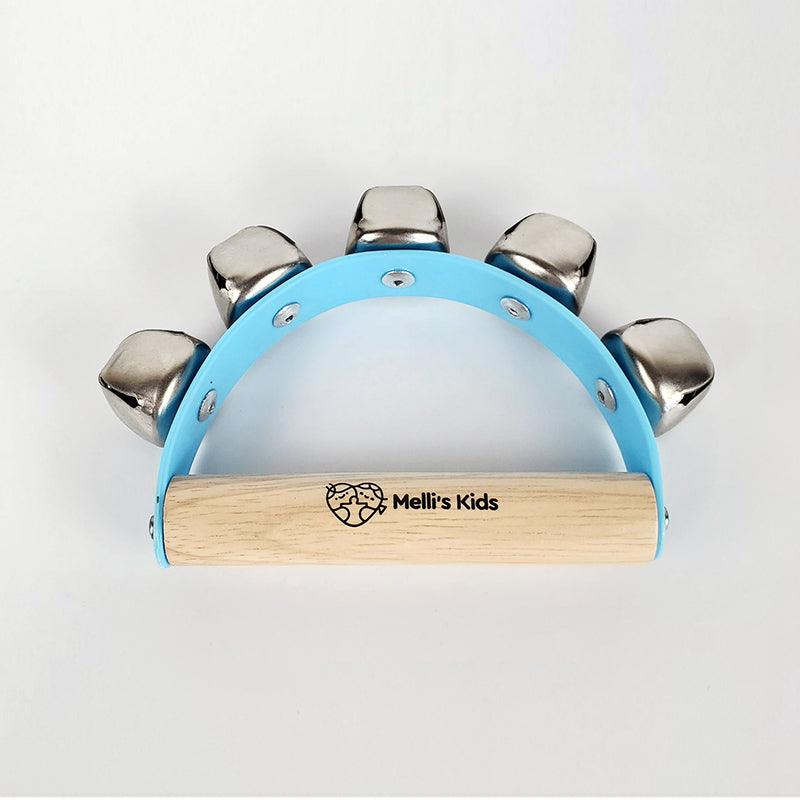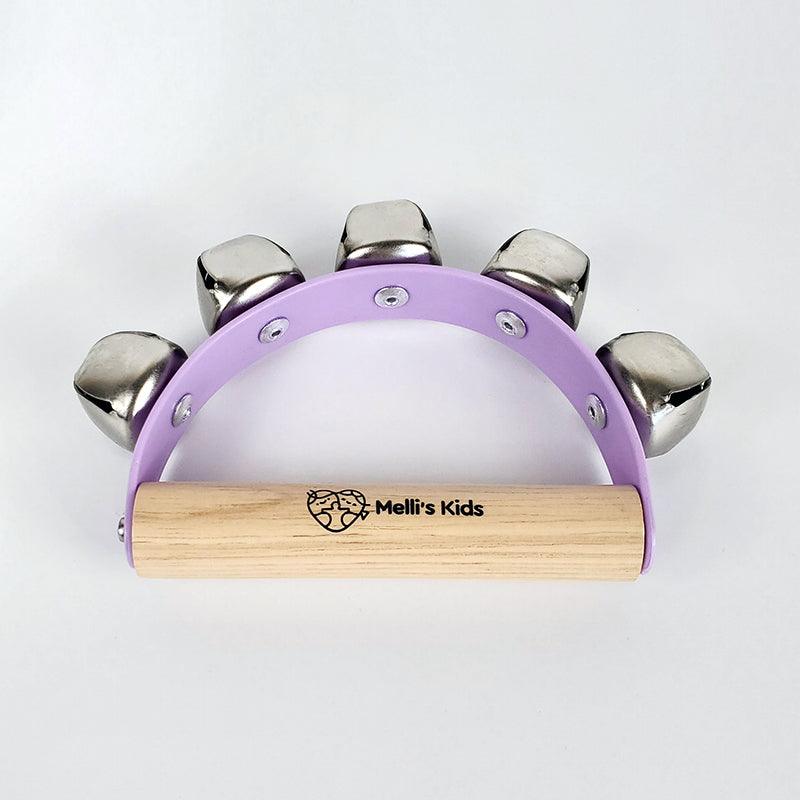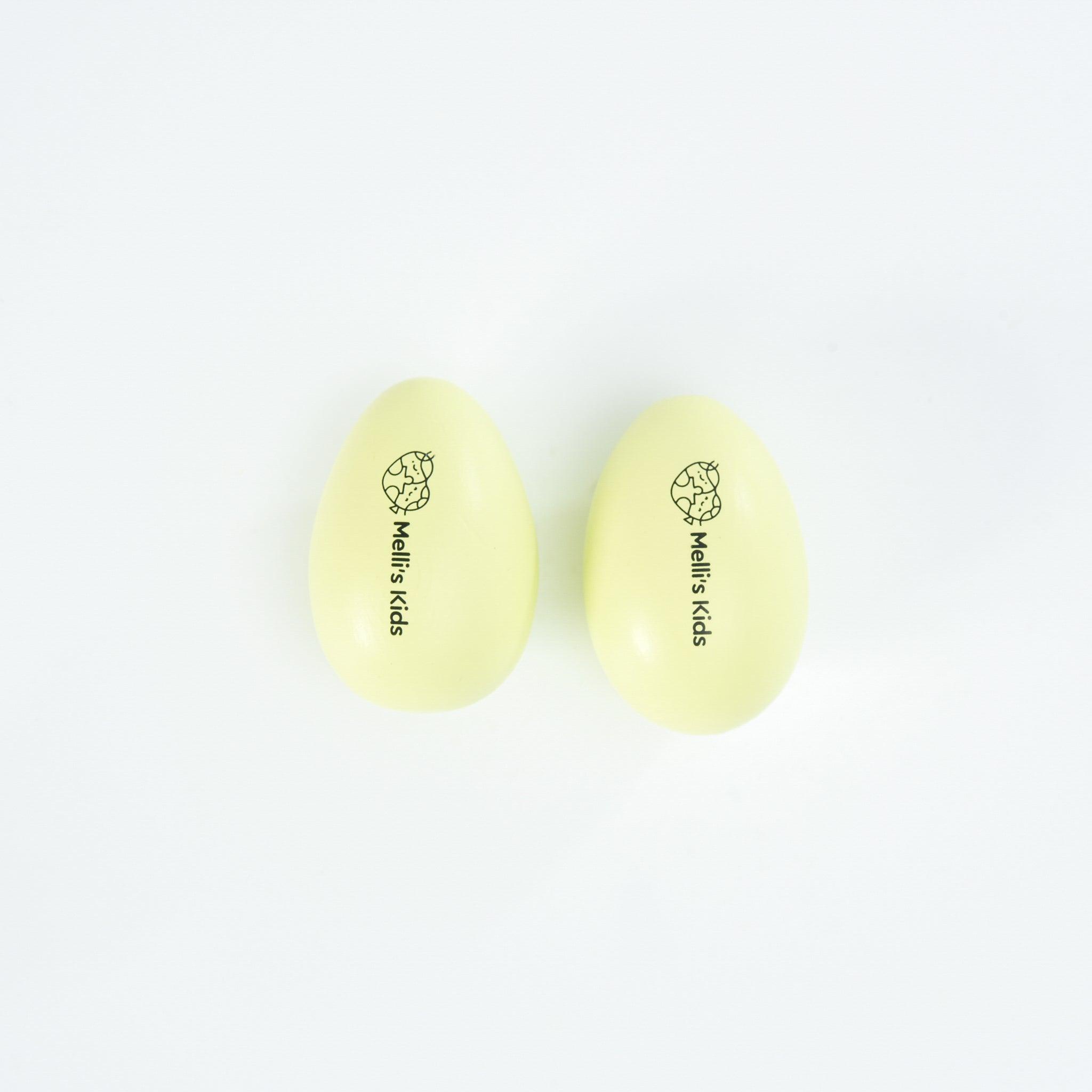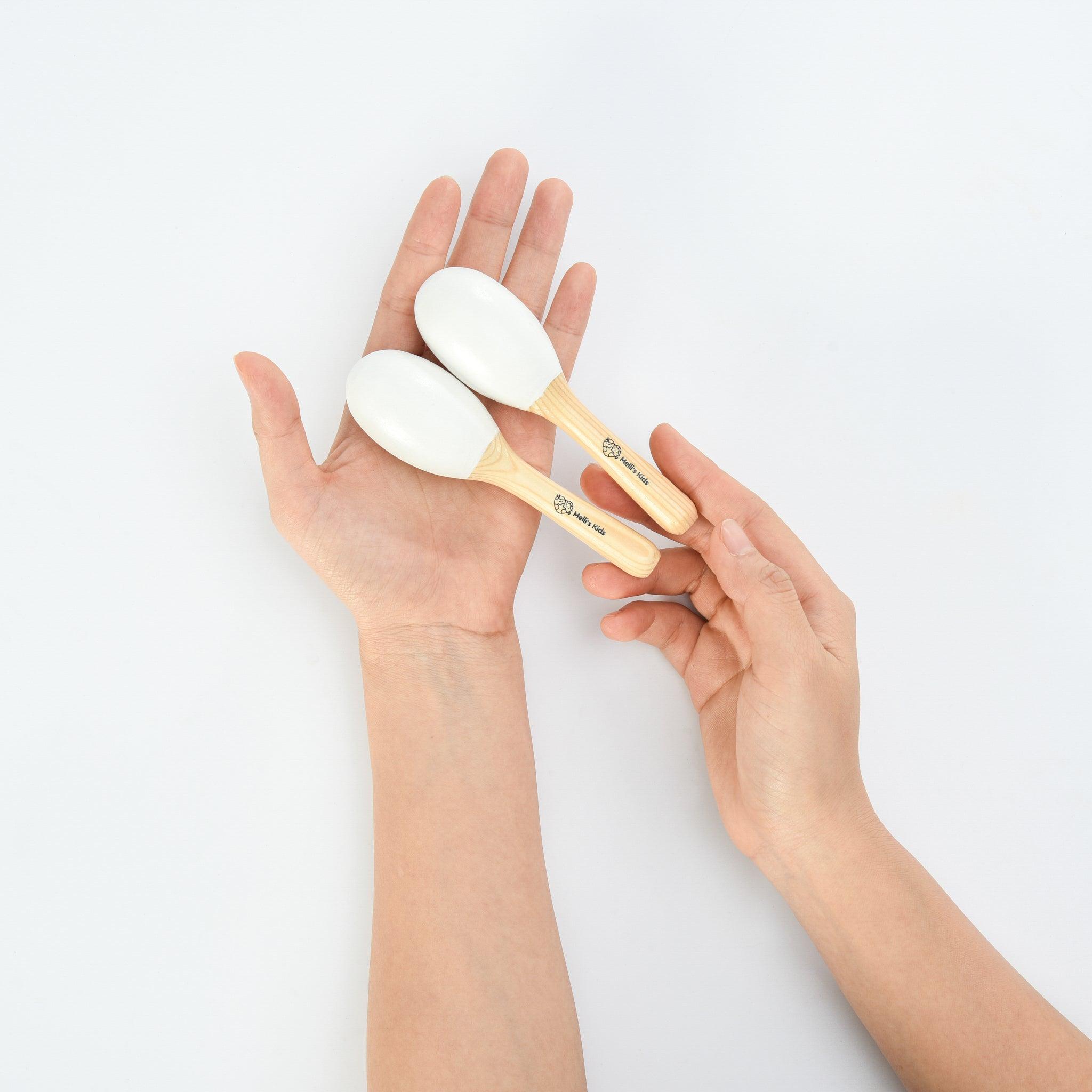The benefits of playing puzzles for children's development
Playing wooden puzzle is a beloved activity from childhood to adulthood that not only trains the mind but also impacts the way people think. Numerous studies show that jigsaw puzzles have a positive influence on children's emotional, cognitive, and motor skills. In this article, Mellis Kids explores the benefits of puzzles.
Benefits of wooden puzzle for kids:
- Problem-solving skills: Children learn to set goals and use their imagination and critical thinking to find solutions, which is an essential skill needed in adulthood.

- Cognitive skills: Wooden puzzle helps children understand rules, including going step by step, recognizing colors, letters, and spatial awareness.
- Hand-eye coordination: Puzzles reinforce connections between what children see and touch.
- Fine motor development: Through finger movements used to put puzzle pieces in place, children learn skills that help in writing, drawing, and playing musical instruments.
- Self-esteem: Completing a puzzle brings a sense of pride and boosts self-confidence, preparing children to face more significant challenges in life.
Popular puzzles:
- House puzzles: This puzzle set challenges children to match the pieces to create squares and triangles, forming a house. It sharpens their eyes and improves hand flexibility.
- Magnetic puzzles: This game stimulates children's imagination and creativity by pairing plastic rods with magnets to create shapes like pyramids, houses, and sun wheels.

- Alphabet puzzles: Children learn letters and increase awareness by matching the right letters into word frames. Available in wood, plastic, or foam.
- Wooden puzzles: Designed with various shapes and colors, this puzzle enhances children's creativity. It's suitable for all families with young children as it's affordable.
- Railroad track kits: Children use plastic pieces to create rails, improving their ability to recognize colors, architecture, and three-dimensional space.
- Domino puzzles: With colorful plastic dominoes, this game enhances finger movement and dexterity. It teaches children the domino effect and encourages them to think before acting.
Puzzles improve children's collaboration abilities, as they learn to explain to one another which parts go where and why. They also learn to cooperate, solve problems, take turns, and share. Completing a puzzle brings joy and satisfaction to everyone involved.
Puzzles are an excellent teaching tool that fosters overall growth in children. Give your child the opportunity to play and discover this fantastic toy.

